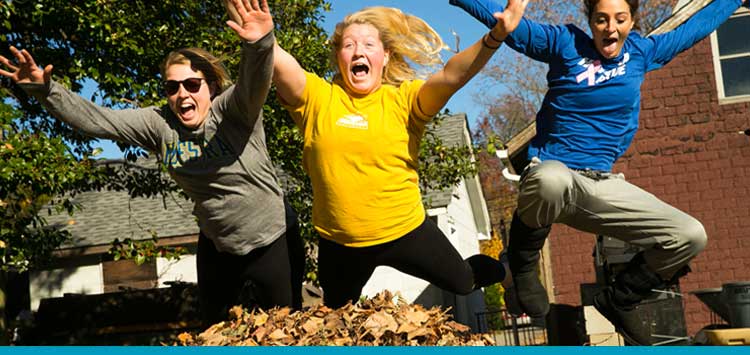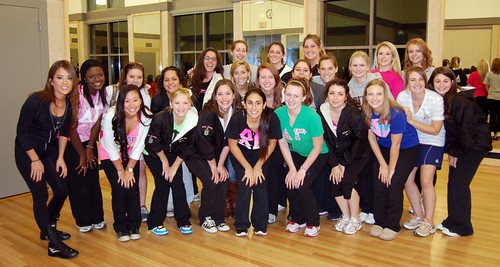The Process
Step 1: Research and Find a Place
When beginning your housing search, do your research. Research the location, transportation, and the reputation of the landlord. Check out the neighborhoods/areas that you are interested in living. If you do not have a car, is public transportation available?
Visit the house/apartment and meet the landlord. It’s important to visit the neighborhood more than once – go during the day, at night, and on the weekend. Contact the local police department for the area you are exploring and ask about the crime statistics. Talk to friends or classmates who have rented from this landlord. Does the landlord maintain a good relationship with their tenants? Are their properties in good condition? Are they responsive to repairs? Since you will need to deal with the landlord a lot, it is important to find out basic information about them. Find out if he or she is a private owner or if a private management company owns the house/apartment. This all takes time, but is well worth it.
Finding a house or an apartment can be a challenging process. Only you can decide what is the best option for you. The following websites listing of rental units assumes that rental landlords are responsible for reporting information fairly and accurately, and Hofstra University cannot guarantee the completeness or accuracy of such information. Inclusion of any property or rental unit on this website does not constitute, and shall not be construed or reported as (1) an endorsement or approval by Hofstra University of the landlord, its properties, or its business practices, or (2) a warranty or representation by Hofstra University as to the equality, safety or other features of such property and/or its owners or management agent(s). Hofstra University expressly disclaims any and all responsibility for any problems that may arise with regard to such property or rental units or with regard to disputes between landlords and tenants concerning such property or rental units. All prospective tenants are encouraged to exercise their own good judgment when evaluating a prospective rental unit or landlord.
Step 2: The Lease
Many people find it difficult to understand the terms of a lease. All issues with the property should be addressed before the lease is signed. Tenants and landlords have rights and responsibilities, but it is important to define the terms of certain items such as when is the landlord permitted to enter the premises, and for what reasons? To learn more about the common lease please refer to the information below provided by community organizations and government agencies:
Nassau/Suffolk Law Services What Every Tenant Should Know
The New York State Attorney General’s Tenant Rights Guide
Metropolitan Council on Housing’s Statutory Rights of Residential Tenants in New York
Other important information can be found in the Property Maintenance Code of New York State
Building codes for the Town of Hempstead can be found here.
Building codes for the Village of Hempstead can be found here.
Step 3: Document…document…document!
Before signing a lease, thoroughly inspect the condition of the house. It is important that the house fulfills basic expectations. There should be no mold or water damage, all doors and windows should close and lock securely, and it should appear in good condition. Check to make sure that all the appliances work-- turn them on! Check that all sinks, toilets, showers, etc, work. Are there carbon monoxide and smoke detectors in every room?
Most importantly, document in writing and with photographs, if possible, the condition of the apartment/house before you move in and at all stages of your tenancy. Use a camera that date-stamps.
When making a verbal request for repairs with the landlord, follow it up in writing (via email or regular mail) so it is documented when and what specifically you are requesting from the landlord.
Keep copies of all correspondence, letters, emails, photographs, and other documents. All notices of renewal or termination within the defined periods should be in writing and sent by certified mail with a receipt, indicating the letter was received
Provide a forwarding address in writing at the end of your lease, using certified mail. When your security deposit is returned keep the envelope (if sent by mail) and make a copy of the check before you deposit it. It is not recommended to conduct any business involving rental payment or security deposits in cash.
Step 4: Be a Good Neighbor!
Living off campus requires students to display good citizenship. It is important to remember that although you may only be living in your new home for a short period of time, many of your neighbors are long-time residents of the community. In order to have the best relationship with your neighbors consider the following things:
- Introduce yourself to your new neighbors and let them know how they can reach you if they have any concerns.
- Keep your neighbors informed. Contact them when undertaking something that may affect them, such as building a fence or getting a dog.
- Be respectful in terms of the noise level that comes from your home, as well as outside of your home. For example, slamming car doors at night.
- Keep your outdoor area neat and orderly, including things like remembering to return your trash cans from the curb after sanitation pick-up has occurred.
- Be sure that you and your housemates respect the parking signs on the street and do not park your cars on the grass at your homes.
- During inclement weather, like snowstorms, be sure your walkway has been cleared for both neighbors and for the U.S. Postal Carriers.
Step 5: Working with a Landlord
In order to make the most our of your off campus living experience, you may wish to consider asking your potential landlord a few questions, such as:
- What is the start date and end date of the lease?
- When can I move in?
- What is the process of terminating a lease?
- How much is the security deposit?
- If the last month of the lease is not a complete month, will the rent be prorated?
- Are there any late payment penalties?
- Are sublets permitted? How much is the sublet fee? What is the sublet process?
- Can I hang up pictures/paint without a fee?
- Can I paint and decorate my living space?
- What utilities are included in rent? If none, what is an estimate of monthly cost?
- If no one resides in the apartment/house during the summer can the utilities be turned off?
- Is Wi-Fi included in the rent?
- How many parking places are available to the apartment/house and is there a monthly charge? Is there a separate contract for parking?
- If there is not a washer/dryer in the unit, where is the laundry facility? If there is a laundry room, is it coin-operated or is there an electronic payment system? How many washers/dryers are in the laundry room?
- Is there a maintenance person on call 24/7? What is the emergency phone number?
- Who is responsible for grass cutting and snow removal?
- Do all bedrooms have smoke detectors? Are they hard wired or battery operated?
- Do all bedrooms have carbon monoxide detectors?
- Does the house/complex have a sprinkler system? Who pays for it?
- Where is the nearest bus stop?
- What type of heat does the house/apt have? (gas or electric)
Are there exterior lights and are they working?

